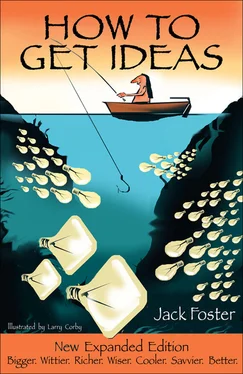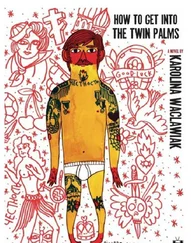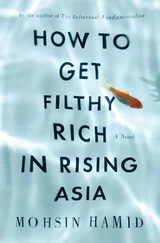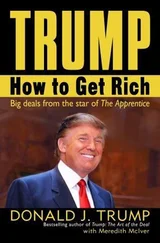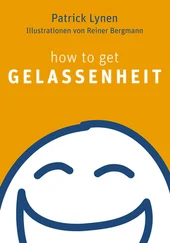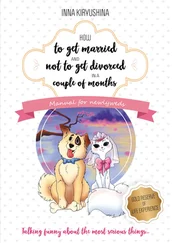Jack Foster
How to Get Ideas
To the three bestideas
I ever had —
My wife Nancy,
and my sons,
Mark and Tim
For seven years I helped teach a 16-week class on advertising at the University of Southern California. The class was sponsored by the AAAA – American Association of Advertising Agencies – and was designed to give young people in advertising agencies an overview of the profession they had chosen.
One teacher talked about account management. One teacher talked about media and research. And I talked about creating advertising.
I talked about ads and commercials, about direct mail and outdoor advertising, about what makes good headlines and convincing body copy, about the use of music and jingles and product demonstrations and testimonials, about benefits and type selection and target audiences and copy points and subheads and strategy and teasers and coupons and free-standing inserts and psychographics and on and on and on.
And at the end of the first year I asked the graduates what I should have talked about but didn’t.
“Ideas,” they said. “You told us that every ad and every commercial should start with an idea,” one of them wrote, “but you never told us what an idea was or how to get one.”
Well.
So for the next six years I tried to talk about ideas and how to get them.
Not just advertising ideas. Ideas of all kinds.
After all, only a few of the people I taught were charged with coming up with ideas for ads and commercials; most were account executives and media planners and researchers, not writers and art directors. But all of them – just like you and everybody else in business and in government, in school and at home, be they beginners or veterans – need to know how to get ideas.
Why?
First, new ideas are the wheels of progress. Without them, stagnation reigns.
Whether you’re a designer dreaming of another world, an engineer working on a new kind of structure, an executive charged with developing a fresh business concept, an advertiser seeking a breakthrough way to sell your product, a fifth-grade teacher trying to plan a memorable school assembly program, or a volunteer looking for a new way to sell the same old raffle tickets, your ability to generate good ideas is critical to your success.
Second, computer systems are doing much of the mundane work you used to do, thereby (in theory at least) freeing you up – and indeed, requiring you – to do the creative work those systems can’t do.
Third, we live in an age so awash with information that at times we feel drowned in it, an age that demands a constant stream of new ideas if it is to reach its potential and realize its destiny.
That’s because information’s real value – aside from helping you understand things better – comes only when it is combined with other information to form new ideas: ideas that solve problems, ideas that help people, ideas that save and fix and create things, ideas that make things better and cheaper and more useful, ideas that enlighten and invigorate and inspire and enrich and embolden.
If you don’t use this fortune of information to create such ideas, you waste it.
In short, there’s never been a time in all of history when ideas were so needed or so valuable.
The first edition of this book contains most of what I told my students about ideas.
This second edition:
• Contains two new chapters – 5, Rejoice in Failure, and 8, Team Up with Energy – that were suggested by friends and by teachers and students who used the first edition as a textbook.
• Updates some of the examples and references and quotations to make the book more current.
• Is reorganized to make more clear the two parts of the book – Part I: Ten Ways to Idea-Condition Your Mind, and Part II: A Five-Step Method for Producing Ideas.
Learned something about ideas from just about everybody I ever taught or worked with. Any attempt to remember and name them all would fail. A sincere but sweeping “Thank you, everyone” must therefore suffice.
Special thanks go to Tom Pflimlin, whose many suggestions helped me improve the first edition of this work; to Henry Caroselli and Mel Sant, whose many suggestions helped me improve this second edition; to Steven Piersanti and his staff, whose enthusiasm and knowledge and skill helped me transform a rough manuscript into a finished book, and a successful first edition into an even better second edition; and to my family, whose faith sustains me.
What Is an Idea?
I know the answer. The answer lies within the heart of all mankind! What, the answer is twelve? I think I’m in the wrong building.
Charles Schultz
I was gratified to be able to answer promptly, and I did. I said I didn’t know.
Mark Twain
If love is the answer, could you please rephrase the question?
Lily Tomlin
Before we figure out how to get ideas we must discuss what ideas are, for if we don’t know what things are it’s difficult to figure out how to get more of them.
The only trouble is: How do you define an idea?
A. E. Housman said: “I could no more define poetry than a terrier can define a rat, but both of us recognize the object by the symptoms which it produces in us.” Beauty is like that too. So are things like quality and love.
And so, of course, is an idea. When we’re in the presence of one we know it, we feel it; something inside us recognizes it. But just try to define one.
Look in dictionaries and you’ll find everything from: “That which exists in the mind, potentially or actually, as a product of mental activity, such as a thought or knowledge,” to “The highest category: the complete and final product of reason,” to “A transcendent entity that is a real pattern of which existing things are imperfect representations.”
A lot of good that does you.
The difficulty is stated perfectly by Marvin Minsky in The Society of Mind:
Only in logic and mathematics do definitions ever capture concepts perfectly. … You can know what a tiger is without defining it. You may define a tiger, yet know scarcely anything about it.
If you ask people for a definition, however, you get better answers, answers that come pretty close to capturing both the concept and the thing itself.
Here are some answers I got from my coworkers and from my students at the University of Southern California and the University of California at Los Angeles:
It’s something that’s so obvious that after someone tells you about it you wonder why you didn’t think of it yourself.
An idea encompasses all aspects of a situation and makes it simple. It ties up all the loose ends into one neat knot. That knot is called an idea.
It is an immediately understood representation of something universally known or accepted, but conveyed in a novel, unique, or unexpected way.
Something new that can’t be seen from what preceded it.
It’s that flash of insight that lets you see things in a new light, that unites two seemingly disparate thoughts into one new concept.
An idea synthesizes the complex into the startlingly simple.
It seems to me that these definitions (actually, they’re more descriptions than definitions, but no matter – they get to the essence of it) give you a better feel for this elusive thing called an idea, for they talk about synthesis and problems and insights and obviousness.
The one that I like the best, though, and the one that is the basis of this book, is this one from James Webb Young:
Читать дальше
